A Conversation About War and Peace With Ron Kovic, Robert Scheer and Chris Hedges
The author of “Born on the Fourth of July” met with the Truthdig journalists at the University of Southern California on Oct. 18 to talk about his latest book, “Hurricane Street,” and how he became a peace activist. Truthdig broadcast the discussion live on Facebook.Ron Kovic knows all about sacrifice. After being paralyzed from the mid-chest down in the Vietnam War, the decorated Marine galvanized the American Veterans Movement in Los Angeles in the spring of 1974, demanding better conditions at veterans hospitals. Kovic’s anti-war exposé, “Hurricane Street”—which follows his best-selling 1976 autobiography, “Born on the Fourth of July”—recounts how he and other wounded veterans made national headlines by performing a 17-day hunger strike in the office of then-U.S. Sen. Alan Cranston. The protest action resulted in better treatment for veterans.
Read an excerpt from the book here.
Truthdig Editor in Chief Robert Scheer and acclaimed author and Truthdig columnist Chris Hedges hosted a conversation with Kovic at the University of Southern California on Tuesday, Oct. 18, to discuss “Hurricane Street” and “Born on the Fourth of July,” as well as the lack of public discourse on America’s wars abroad.
The conversation was streamed live on our Facebook page on Tuesday night.
Hedges delved into the problems he sees in the modern-day mainstream media’s coverage of war:
I find that severance from a print-based culture terrifying. One of the things about being in war which you don’t necessarily get from the popular culture is there’s huge amounts of time of just utter boredom. I can remember being trapped in a river in Africa for three days waiting to cross. I read all of Proust during the war in Bosnia, and I probably read more as a war correspondent than I read now. But those great writers give you the language by which you can give words to the reality that the dominant culture seeks to hide.
Malcolm X was one of the great intellectuals who understood this, and so I think this severance from a print-based culture, from a world of ideas, from a world of reflection, from the capacity for solitude, is intentional and is so disruptive to our ability to actually think while we are stripped of all of our civil liberties — Habeas Corpus — our right to privacy, our right to due process, the indiscriminate use of lethal violence on the part of militarized police, endless war. All of this is coming about, and we’re kind of sleep walking towards a Christianized fascism because Trump is not the phenomen[on]; Trump is responding to the phenomenon.
Kovic brought up the book he’s working on at the moment:
One of the things I struggle with in this new book I’m working on — the book is about dealing with terrible trauma, not only my own personal trauma but the trauma that occurs when I pull the trigger of a rifle, when I’m part of the killing another human being — is when I have to live with that every day for the rest of my life. I’m going to have to realize what that really means. When everything’s stripped away and I’m naked and I’m in my room alone, and I realize that I took a life out of this — I took a life that some mother and father once loved. I took a life that perhaps had a wife and a child. I took a life that only wanted to live just as I only wanted to live. You live with that wound — besides the paralysis and the loss and the personal grief you go through, losing an arm, a leg, being paralyzed — the fact that you harmed a human being. You ruined a life. You obliterated, you erased a life from this world, and you’re still alive. You’re still here. You struggle through that.
[…] I’ve known this story for a long time, just writing this story now that I’ve wanted to write. This is the last — I waited late in life to write this because it’s the hardest one. It’s about the movement through that trauma, the movement through that healing, the movement from having no belief in God at all, no faith, having lost all of that, just loss of any faith, wanting to leave the country, wanting to be an expatriate, wanting to completely leave America forever, ashamed, wanting to somehow find a safer place […] and yet finding a way to come back, finding a way back to this country, finding a way to believe in this country — but in a way far different than when I was a Cub Scout or a Boy Scout or when I was joining he Marines.
Watch the rest of the discussion below.
Kovic also spoke with Scheer on the KCRW show “Scheer Intelligence” in February about the events that influenced “Hurricane Street”:
Many of these men that I was around in the hospital felt defeated. They felt that they had lost the war, but they felt defeated physically, emotionally, psychologically. Somehow, some way, we were able to organize a bunch of them and go down to Senator Cranston’s office that day, and take over the office. And that sit-in, which was supposed to last just one night, quickly escalated into a hunger strike, which would eventually touch the entire nation. For years, I thought after the strike ended—and it lasted 17 days; we went 17 days without food. Paralyzed veterans who sacrificed their bodies in Vietnam, had to, had to go on a hunger strike to demand to be treated like human beings. We called it a national veterans’ crisis at the time. We had gone to Vietnam, we had believed in what they told us, and we had lost a great deal of our bodies. And here we were in a senator, United States senator’s office, demanding to be treated with respect, to be treated like human beings.
On Monday, Oct. 16, Hedges joined Scheer for a salon in a private Los Angeles residence to discuss Hedges’ decades as a correspondent in war-torn countries, the problems with modern religion and the rise of neoliberalism.
Watch past editions of “Live at Truthdig” on our YouTube channel.
Your support matters…Independent journalism is under threat and overshadowed by heavily funded mainstream media.
You can help level the playing field. Become a member.
Your tax-deductible contribution keeps us digging beneath the headlines to give you thought-provoking, investigative reporting and analysis that unearths what's really happening- without compromise.
Give today to support our courageous, independent journalists.
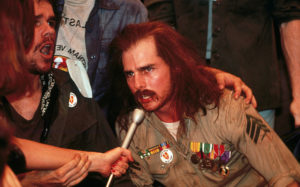
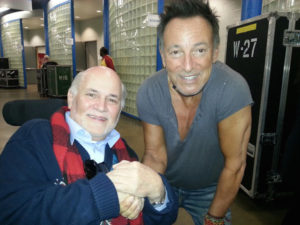
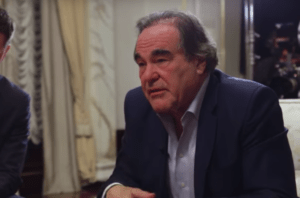
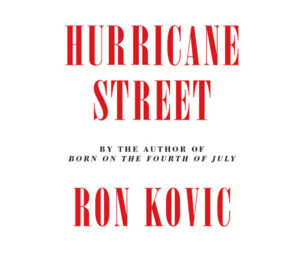
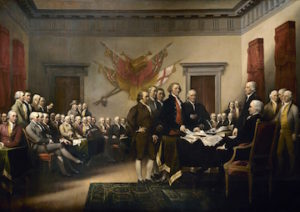
You need to be a supporter to comment.
There are currently no responses to this article.
Be the first to respond.